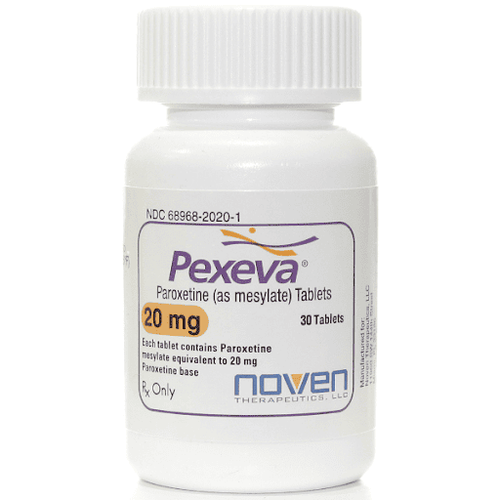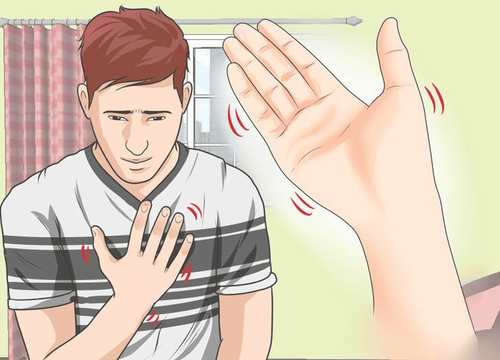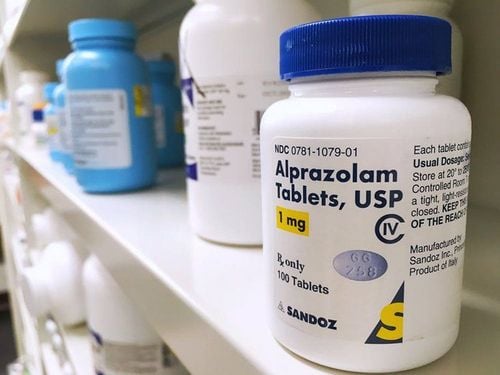This is an automatically translated article.
Posted by Le Thi Huong - General Practitioner - Department of Examination - Vinmec Times City International Hospital
Childhood mental illness is a mental disorder caused by many factors, including genetic factors and brain chemistry. As a result, many mental illnesses can be effectively treated with medication, psychotherapy, or a combination of both.
Nearly 5 million children in the United States have some form of serious mental illness (a condition that significantly affects daily life). In any given year, 20% of American children are diagnosed with a mental illness. In fact, the term "mental illness" is not entirely accurate, because many "physical" factors - including genetics and brain chemistry - may be involved in the development of mental disorders. God . Therefore, many mental disorders can be effectively treated with medication, psychotherapy, or a combination of both.
1. Mental health in children
Identifying mental illnesses in children can be difficult for health care providers. Children differ from adults in that they undergo many physical, mental, and emotional changes as they progress in their natural growth and development. They are also in the process of learning how to cope, adapt, and relate to other people and the world around them.
Furthermore, each child matures at their own pace, and what is considered "normal" in children lies in a wide range of behaviors and abilities. For these reasons, any diagnosis of mental disorder must consider the child's ability to function at home, in the family, at school, and with peers, as well as the age and symptoms of young.
2. What mental health condition is most common in children?
There are several different types of mental disorders that can affect children and adolescents, including:
Anxiety disorders: Children with anxiety disorders react to certain events or situations with fear and dread, as well as with physical signs of anxiety (stress), such as rapid heartbeat and sweating. Attention Deficit/Hyperactivity Disorder (ADHD): Children with ADHD often have problems paying attention or concentrating, seem unable to follow instructions, get bored easily, and/or Disappointed with the job. They also tend to move constantly and impulsively (without thinking before acting). Disruptive Behavior Disorders: Children with these disorders tend to defy rules and are often disruptive in structured settings, such as school. Pervasive Developmental Disorders: Children with these disorders have confusion in thinking and generally have problems understanding the world around them. Eating Disorders: Eating disorders involve intense emotions and attitudes, as well as unusual behaviors related to weight and/or food. Rejection Disorders: Behavioral disorders related to bathroom use. Bedwetting is the most common of the elimination disorders. Learning and communication disorders: Children with these disorders have problems storing and processing information, as well as relating their thoughts and ideas. Mood (mood) disorders: These disorders involve persistent feelings of sadness and/or rapidly changing moods, including depression and bipolar disorder. A more recent diagnosis is called mood dysregulation, which is a childhood and adolescent condition that involves chronic or persistent irritability and frequent outbursts of anger. Schizophrenia: This disorder involves distorted perception and thinking. Tic disorders: These disorders cause a person to make repetitive, sudden, involuntary (unintentional) and often meaningless movements, called tics. Some of these disorders, such as anxiety disorders, eating disorders, mood disorders, and schizophrenia, can occur in adults as well as children. Others only start in childhood, though they may continue into adulthood. It is not uncommon for a child to have more than one disorder.
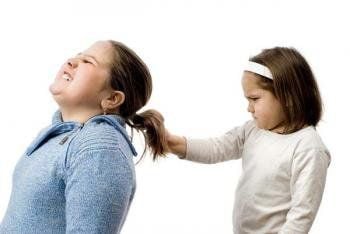
3. What are the symptoms of psychosis in children?
Symptoms of mental illness in children vary depending on the type of mental illness. Some common symptoms include:
Drug and/or alcohol abuse Inability to cope with problems and daily activities Changes in sleeping and/or eating habits Excessive complaints of physical illnesses Substance defy authority, truancy, stealing, or damaging property Fear of weight gain Persistent negative mood, often accompanied by loss of appetite and thoughts of death Frequent anger Changes in academic performance , such as getting poor grades despite trying well Loss of interest in friends and activities they normally enjoy Significant increase in time alone Excessive anxiety or worry Hyperactivity Cruelty attacks Persistent dreams or night terrors Persistent disobedience or aggressive behavior Hearing voices or seeing things that aren't there (hallucinations)
4. What causes mental disorders in children?
The exact cause of most mental disorders is unknown, but research suggests it may be related to a combination of factors, including genetics, biology, trauma, and stress. environment straight. Specifically:
Heredity (inherited): Many mental disorders run in families, suggesting that the disorder, or more precisely a vulnerability to the disorder, can be passed on from parents to offspring through genes. Biology: As in adults, many mental disorders in children are related to abnormal functioning of specific brain regions that control emotions, thoughts, perceptions, and behaviour. Head injuries can also sometimes lead to changes in mood and personality. Traumatic Trauma: Some mental disorders can be triggered by psychological trauma, such as severe sexual, physical or sexual abuse; an important initial loss, such as the loss of a parent and neglect. Environmental stress: Stressful or traumatic events can trigger disturbances in a person who is prone to psychosis.
5. How to diagnose mental illness in children?
Like adults, mental disorders in children are diagnosed based on signs and symptoms. However, diagnosing mental illness in children can be especially difficult. Many behaviors that are considered symptoms of a mental disorder, such as shyness, anxiety (stress), strange eating habits, and temper tantrums, can occur as a normal part of the development process. children's development. Behaviors become symptomatic when they occur very frequently, persist, occur at an unusual age, or cause significant disruption to a child and/or family's life.
If symptoms appear, the doctor will begin the evaluation by performing a complete physical and developmental history as well as a physical exam. Although there are no laboratory tests to specifically diagnose mental disorders, your doctor may use various diagnostic tests, such as neurological imaging and blood tests, to rule out The physical illness or the side effect of the medication is the cause of the symptoms.
If no physical illness is found, the child may be referred to a psychiatrist or child and adolescent psychologist. Health care professionals are specially trained to diagnose and treat mental illness in children and adolescents. Psychiatrists and psychologists use specially designed assessment and interviewing tools to assess whether a child has a mental disorder. The doctor makes a diagnosis based on reports of the child's symptoms and observations of the child's attitudes and behavior. Doctors often have to rely on reports from a child's parents, teachers, and other adults, because it is often difficult for children to explain their problems or understand their symptoms. The doctor will then determine if the child's symptoms indicate a specific mental disorder.

6. How is mental illness in children treated?
Mental illnesses, like many medical disorders, such as diabetes or heart disease, require ongoing treatment. Although there have been many advances in the treatment of adults with mental disorders, the treatment of children is still poorly understood. Experts are still discovering which treatments work best for these conditions in children. Currently, many of the treatments used for children, including many medications, are the same as those for adults but in different doses. The most common treatment options used include:
Medications: Medications commonly used to treat mental disorders in children include antipsychotics, antidepressants, and anti-anxiety medications. , stimulants and mood stabilizers. Psychotherapy: Psychotherapy (a type of counseling often referred to simply as therapy) addresses the emotional response to mental illness. It is a process in which trained mental health professionals help people cope with their illness, often by talking through strategies for understanding and coping with symptoms, depression and anxiety. their thoughts and behaviour. The types of psychotherapy commonly used with children are supportive, cognitive-behavioral, interpersonal, group, and family therapy. Creative therapy: Certain therapies, such as art therapy or play therapy, can be helpful, especially with young children, who may have difficulty communicating thoughts and his feelings.
7. What are the side effects of mental illness treatment?
Different medicines have different side effects and some children cannot tolerate certain medicines. Although FDA-approved drugs to treat mental disorders in children are generally considered safe, your doctor may need to change the type or dose of the drug to minimize side effects. It can take some trial and error to find the medication that works best for each child.
8. What is the outlook for children with mental disorders?
Without treatment, many mental disorders can continue into adulthood and lead to problems in all areas of the person's adult life. People with untreated mental disorders are at increased risk for many problems, including alcohol or drug abuse and (depending on the type of disorder) violent or self-destructive behavior, even even suicide.
With early and appropriate treatment, many children can fully recover from a mental disorder or successfully control their symptoms. Although some children become disabled adults because of a chronic or severe disorder, many people who experience mental illness, such as depression or anxiety, are still able to live full and productive lives. useful.
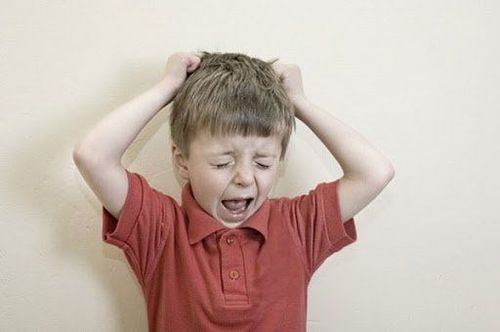
9. What research is being done on mental disorders in children?
To date, most research on mental illness has focused on adults. However, the mental health community has now begun to focus on childhood mental illness. Researchers are looking at childhood development in terms of normal and abnormal, trying to understand how factors that influence development can have an impact on mental health.
The aim is to try to predict and ultimately prevent developmental problems that can lead to mental illness. An important part of this research is identifying risk factors that increase a child's likelihood of developing a mental disorder. Additionally, the mental health community is calling for more research into the drugs used to treat mental disorders in children.
10. Are mental disorders in children preventable?
Most mental disorders are caused by a combination of factors and cannot be prevented. However, if symptoms are recognized and treated early, many of the distressing and disabling effects of mental disorders can be prevented or at least minimized.
Psychological Clinic - Vinmec Times City International General Hospital has the function of examining, consulting and outpatient treatment of psychological and mental health problems in both adults and children. With modern equipment and a team of highly qualified psychologists, the Psychology clinic - Vinmec Times City International General Hospital is capable of implementing psychological tests and intensive psychotherapy to treat patients. medical service.
With enthusiasm and love for the profession, the team of doctors working at the clinic gives customers the best services with the highest service quality.
Psychology Clinic is currently cooperating with leading professors and experts of Hanoi Medical University, frontline hospitals in the country and internationally to diagnose and treat in order to bring effective medical examination and treatment. best cure.
Please dial HOTLINE for more information or register for an appointment HERE. Download MyVinmec app to make appointments faster and to manage your bookings easily.







